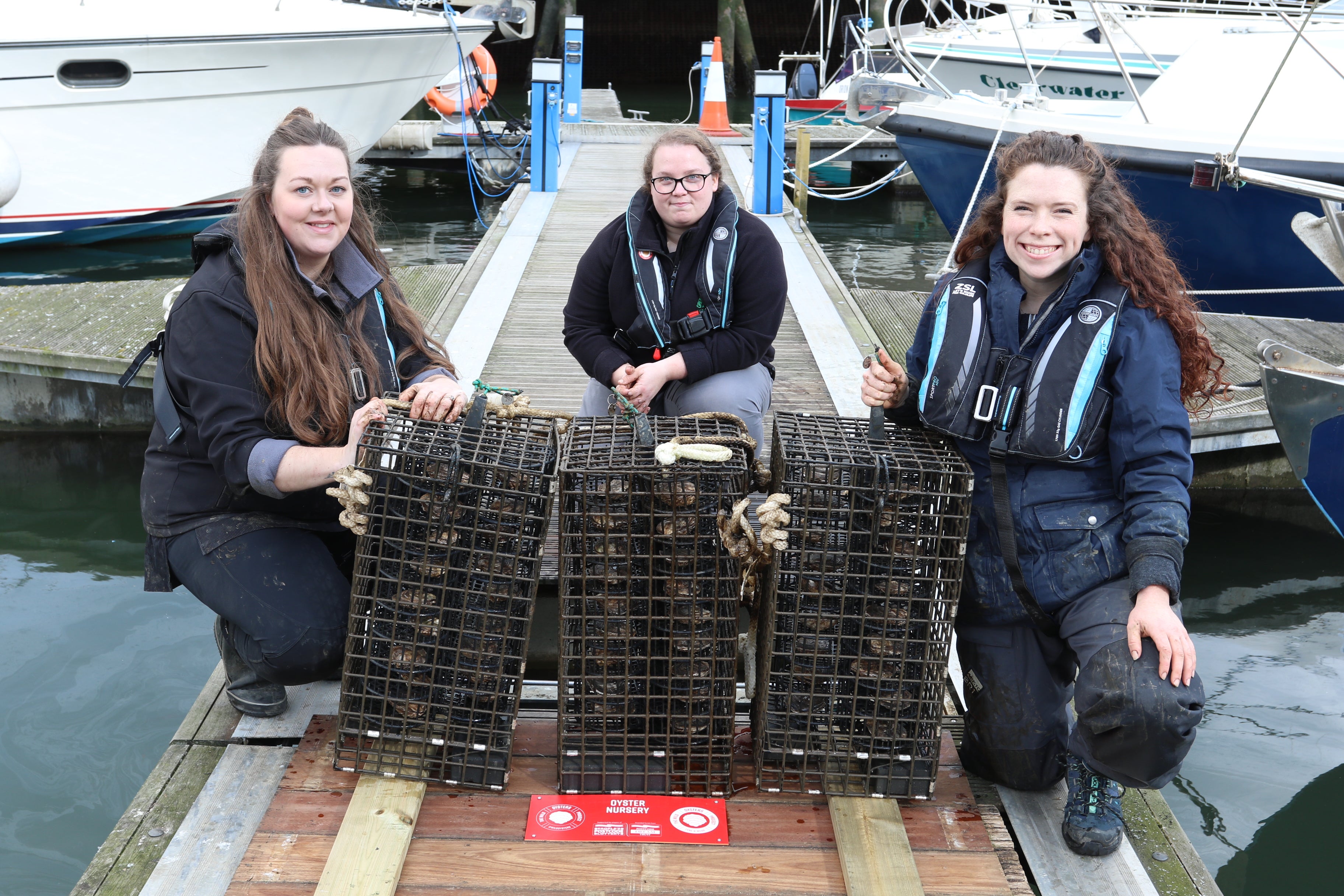Rewilding: Thousands of oysters to be returned to UK waters after 95% decline since 19th century
Deployment of oyster nurseries will allow millions of larvae to be released into the sea around the British coast

Your support helps us to tell the story
From reproductive rights to climate change to Big Tech, The Independent is on the ground when the story is developing. Whether it's investigating the financials of Elon Musk's pro-Trump PAC or producing our latest documentary, 'The A Word', which shines a light on the American women fighting for reproductive rights, we know how important it is to parse out the facts from the messaging.
At such a critical moment in US history, we need reporters on the ground. Your donation allows us to keep sending journalists to speak to both sides of the story.
The Independent is trusted by Americans across the entire political spectrum. And unlike many other quality news outlets, we choose not to lock Americans out of our reporting and analysis with paywalls. We believe quality journalism should be available to everyone, paid for by those who can afford it.
Your support makes all the difference.A major effort to bring back the UK’s native oysters is underway across England, Scotland and Wales, in which thousands of the bivalves will be returned to coastal areas to improve water quality, create important habitats and help rescue the species from the brink of extinction.
Their restoration project aims to bring oysters back to the seabed in Langstone Harbour, near Portsmouth on the Hampshire coast. The project will seek to transform marine biodiversity and water quality in the Solent - the strait which separates Hampshire and the Isle of Wight - which was once home to Europe’s largest oyster fishery.
Around 4,000 oysters will be installed in “nurseries” around the coast in the months before they begin to reproduce, at which point they will release millions of baby oysters into the sea. So far, over 1,300 oysters are already in place underneath marina pontoons in Sunderland Marina and the Port of Blyth, in the north east of England.
The Wild Oysters Project, a collaboration between ZSL (Zoological Society of London), the Blue Marine Foundation and British Marine, is the largest effort so far to restore the species, which has declined by 95 per cent since the 1800s due to human activity.
ZSL said our returning wild native oysters (Ostrea edulis) to the sea will provide huge benefits by helping to create healthy coastal waters and act as an important habitat for marine wildlife.
“These oysters will produce the next generation of the oyster population, by releasing larvae which will settle onto the seabed,” said Celine Gamble, ZSL’s Wild Oysters Project manager.
Read more:
“Despite their small size oysters are capable of filtering 200 litres of water a day, the oysters will almost immediately begin their important work helping to create cleaner water and increase marine biodiversity in the UK.”
Blue Marine Foundation’s senior UK projects manager Morven Robertson said, “It is vital in the current climate emergency and biodiversity crisis that nature receives the help it needs to bounce back.

“The Wild Oysters project will give the marine environment a chance to recover, which is not only important for nature and climate, but also the people that rely on it.”
Local project officers will help to care for the newly placed oysters, ZSL said, including from the Environment Agency North East and Groundwork North East and Cumbria.
"We are thrilled to bring oyster restoration efforts to North East coastal waters, to revive this forgotten and remarkable native species locally. It’s great to have active hands-on marine conservation work happening on the doorstep of local coastal communities” said Ashleigh Tinlin- Mackenzie, Local Project Officer for the Wild Oysters Project.
The Wild Oysters project was made possible after it was awarded £1.18m by the people’s postcode lottery.
The initiative comes as another project, also involving the Blue Marine Foundation with partners at Portsmouth University, comes to fruition.
Sign up to The Independent Climate Newsletter for weekly updates on the environmental emergency
Join our commenting forum
Join thought-provoking conversations, follow other Independent readers and see their replies
Comments